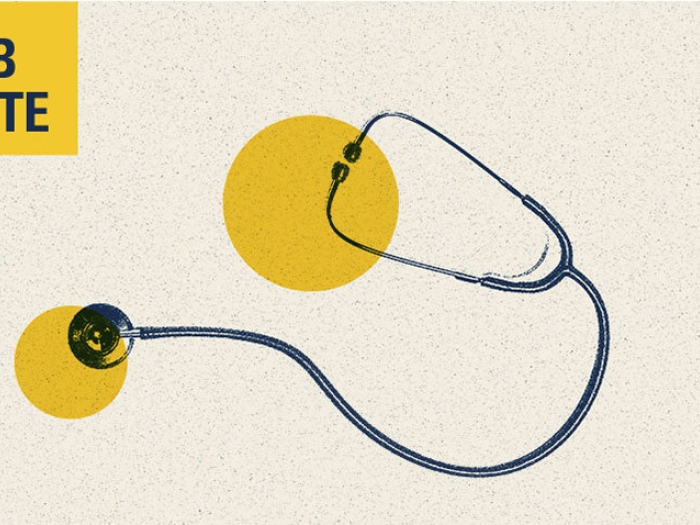A poll shows strong support for clinics’ efforts to screen for, and providing support for, social determinants of health.
Transcript
Host (00:05):
Welcome to the Michigan Medicine News Break. Your daily destination for news and stories about the future of healthcare. Today, Gen Z wants health providers to ask about food, housing, safety, and more. A poll shows strong support for clinics efforts to screen for and providing support for social determinants of health. Their parents and grandparents probably never got asked by a doctor or nurse whether they had enough to eat, a safe and stable place to live, if someone was discriminating against them, or anything getting in the way of their education. But most members of generation Z say they want their healthcare providers to ask about these things, and most want providers to offer information and referrals for services to address these concerns according to a new poll. And most understand why these social determinants of health, as they're collectively called, are important to overall health.
Host (00:50):
The poll findings published in the June issue of the Journal of Adolescent Health by a team from the University of Michigan are based on data from the My Voice National Poll of Youth based in the U-M Department of Family Medicine. More than 1,000 youth aged 14 to 24 answered five open ended questions via text message in March 2021. Nearly 39% of respondents came from families whose income levels qualified them for free or reduced price school lunch under national criteria. The poll asked about housing, food, education, safety, and discrimination, all factors that can effect a person's health in the short and long term, and their ability to seek care and keep up with treatments.
Host (01:28):
In all, 81% of youth said providers should ask about such factors. Nearly a third said that embarrassment might keep them from seeking help for such issues that they were experiencing them. In addition, a quarter said they would want providers to offer resources for people with social needs and a nearly equal percentage said providers should offer information about resources that can assist people with such needs.
Host (01:49):
Finally, youth's most commonly reported preference for how to receive information about assistance or social risk was in person, though they were amenable to phone, email, and handouts as well. First author Claire Chang, a U-M Medical School student says:
Claire Chang (02:03):
It seems obvious that addressing social needs like food and housing in clinical settings would benefit patients, but we actually know very little about whether and how patients would want to receive this kind of assistance. Youths in our study told us that they do want to talk about social determinants of health with their providers, and it's important for us to understand these preferences and desires as social and medical care integration efforts spread across the country.
Host (02:28):
An increasing number of health systems and clinics, including UM's own academic medical center, Michigan Medicine, now screen for social determinants of health. Poll Director and UM Family Member Physician Tammy Chang, M.D., M.P.H., M.S. concurs:
Dr. Tammy Chang (02:42):
As a doctor, what I hear is my adolescent and young adult patients want me to ask them about more than their health. They want me to ask them about their lives. This opens the door for doctors and other healthcare providers to really understand the root causes of the issues that young people are facing today. Youth in our study didn't expect providers to solve their issues, rather just listen. I can do that.
Host (03:03):
Chang is a member of the UM Institute for Healthcare Policy and Innovation.
Host (03:08):
For more on this story and others like it, visit www.uofmhealth.org/healthblogs and find the Michigan Medicine News Break wherever you listen to podcasts.

Listen to more Health Lab podcasts - a part of the Michigan Medicine Podcast Network.






